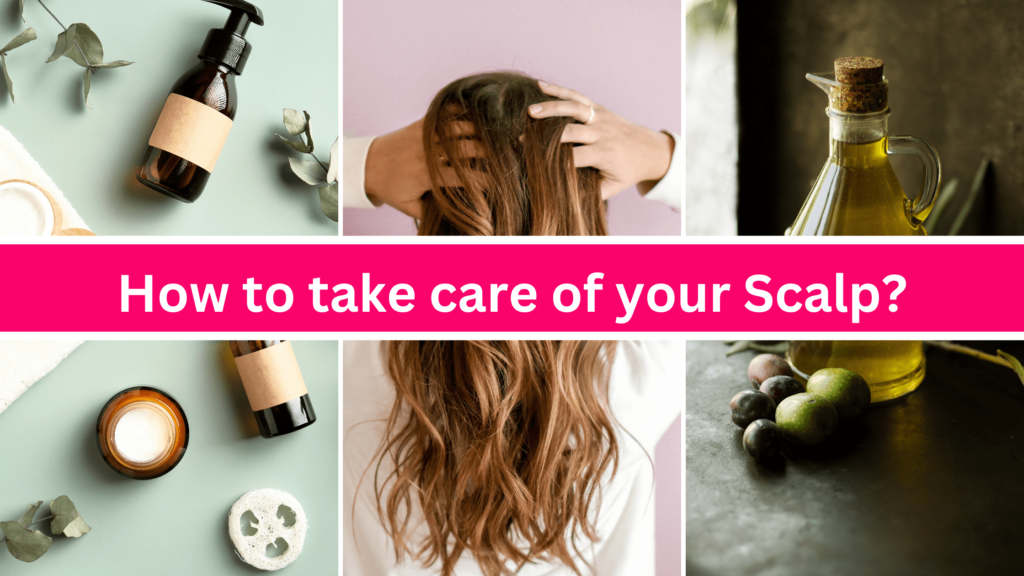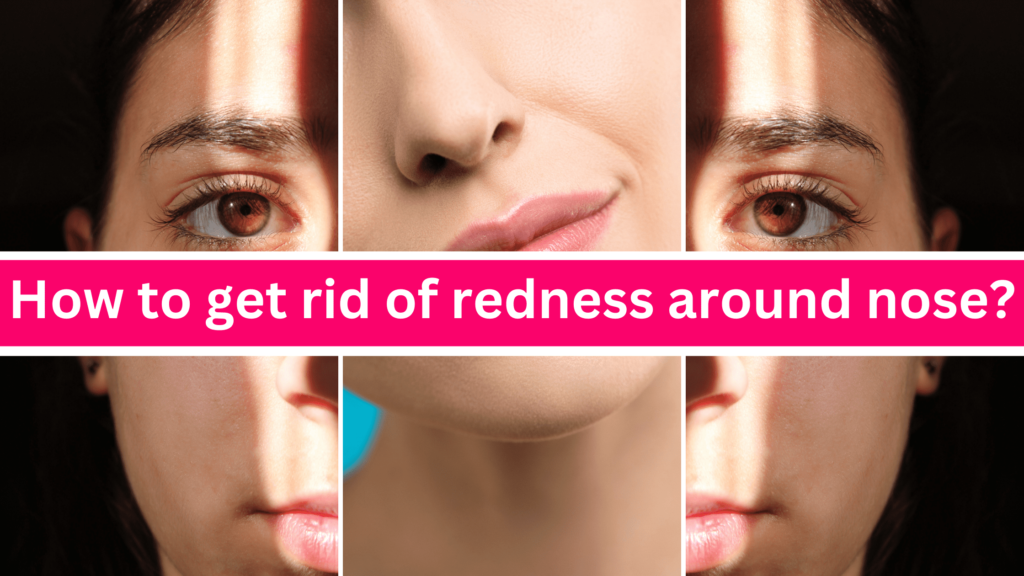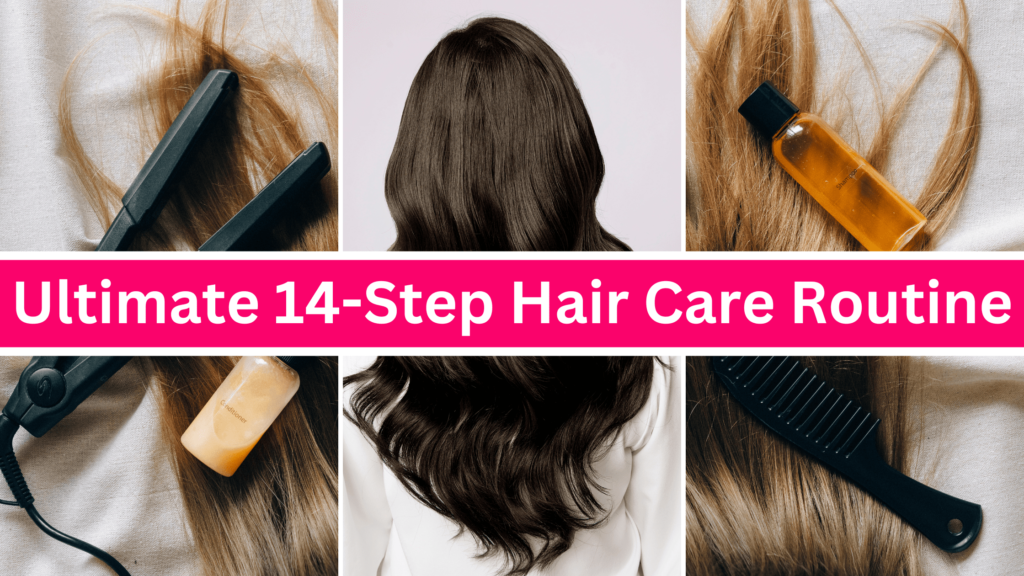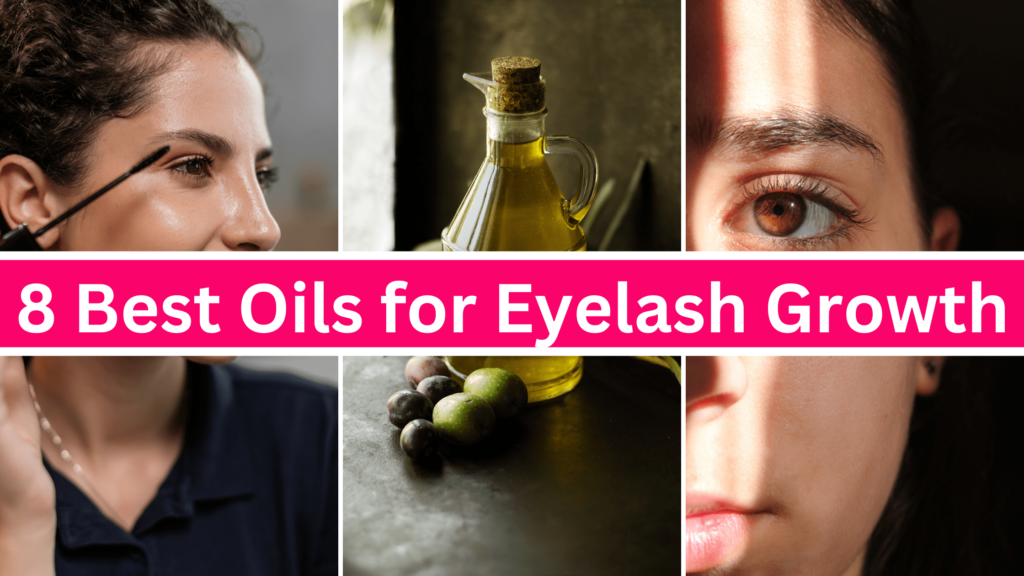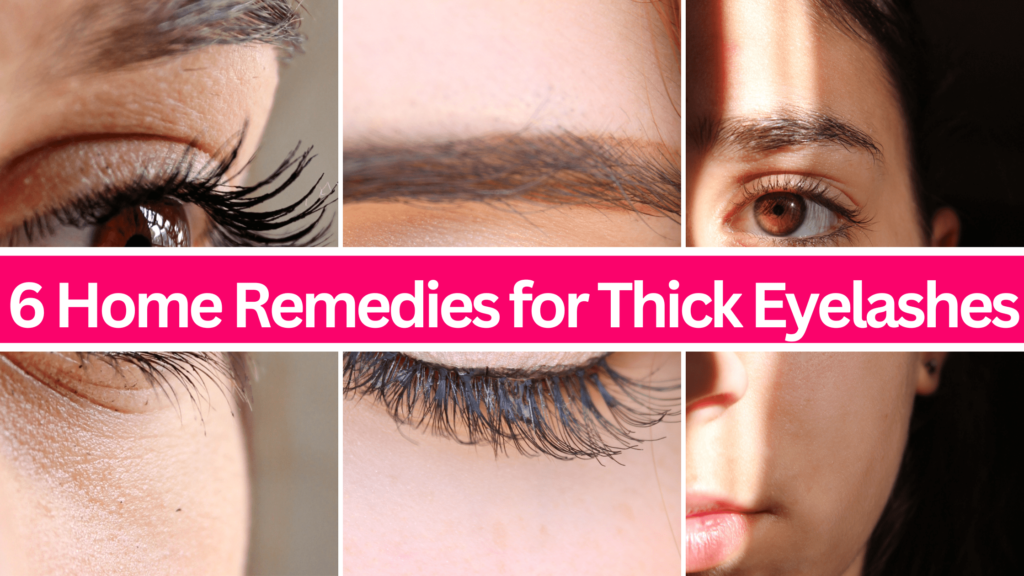This post may contain affiliate links which means I may receive a commission for purchases made through links. Learn more on my Disclosure page.
If you are on the journey of growing thick and long beautiful hair then the question “How to take care of your scalp?” will definitely pop up in your mind.
Now, even in self-care if we see there is tons of content on skincare like DIY facemasks, how to use Gua sha for beautiful skin, or how to grow your lashes naturally. But no one really talks about scalp care except a few hairs care enthusiasts.
While you are on a journey to have long hair, one thing you need to know is How to do proper scalp care. Because no matter how much money you invest in any product if your scalp is not healthy you will not have good hair.
Did you know your scalp ages six times faster than the rest of your skin? Keeping your scalp happy and healthy is essential for vibrant hair. Your scalp is its own microbiome, meaning it is completely different than the rest of the skin on your body, so it is important to know how to take care of it.
This is the basic scalp care you need even if you have a dandruff-prone scalp or oily scalp you need this for healthy scalp!
1 UV protection
You know how important sunscreen is for your skin, but your scalp needs protection too. Exposing it to UV rays can lead to serious issues, as skin cancer. Plus, if you have thin hair or often leave your scalp exposed, you’re at even greater risk.
But no worries! I’ve got some easy tips to keep your scalp safe:
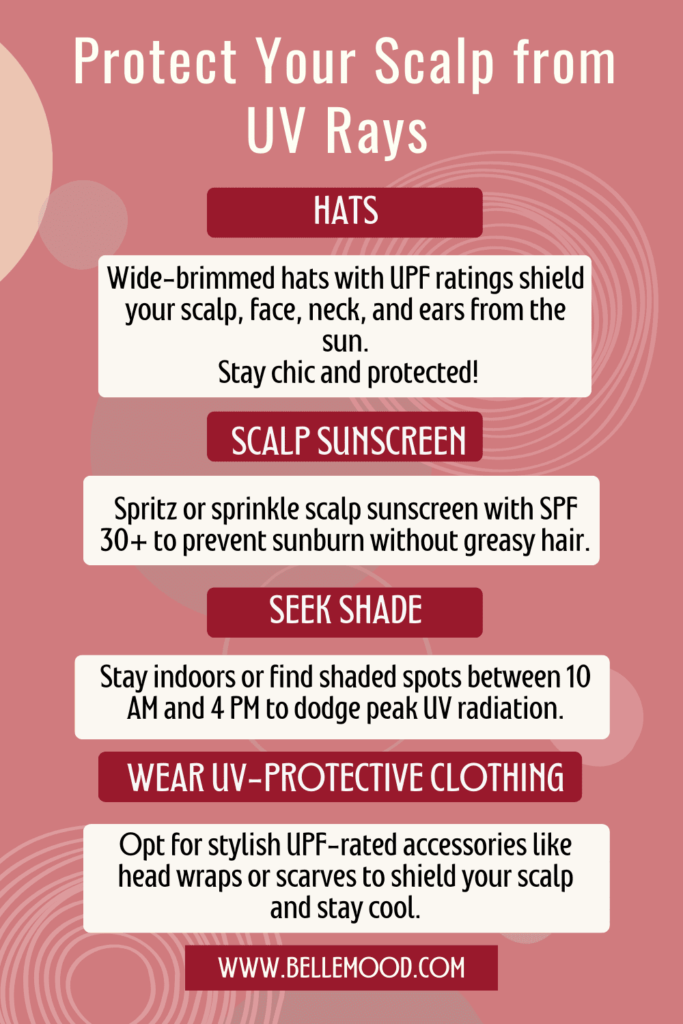
Importance of Scalp UV Protection
1. Hats
Hats are your best friend when it comes to sun protection. Not only do they shield your scalp, but they also cover your face, neck, and ears. Go for hats with an Ultraviolet Protection Factor (UPF) rating—they’re like sunscreen in hat form! Plus, wide-brimmed hats can be super chic and add a fun flair to any outfit.
2. Use Scalp Sunscreen
Scalp sunscreens come in sprays or powders that are easy to apply without leaving your hair greasy. Just spritz or sprinkle on your part and any exposed areas. Look for broad-spectrum options with at least SPF 30 for the best protection.

3. Seek Shade
Whenever you can, stay in shaded areas during peak sun hours, typically between 10 AM and 4 PM. This is when UV radiation is strongest. It’s the perfect excuse to lounge under a beach umbrella, find a cozy spot under a tree, or enjoy indoor activities during the hottest part of the day.
4. Wear UV-Protective Clothing
There are stylish options with UPF ratings that can cover your scalp, like head wraps, scarves, or even hooded shirts. These fabrics are designed to block out harmful rays while keeping you cool and comfortable.
Why Protecting Your Scalp from UV Rays is a Big Deal
It’s not just about avoiding a bad hair day—there’s a lot more at stake. Here’s why you should make scalp protection a top priority:
• Prevent Sunburn
Sunburn on your scalp is no joke. It’s super painful and can leave your skin red, irritated, and flaky. Plus, it’s easy to forget about until it’s too late. Keep your scalp health in check with sunscreen.
• Reduce Skin Cancer Risk
Did you know that your scalp is a common site for melanoma and other skin cancers? Because it’s often exposed to the sun, it’s vulnerable to UV damage.
• Prevent Hair Damage

UV radiation doesn’t just harm your skin—it can also wreak havoc on your hair. Too much sun exposure can weaken your hair strands, making them dry, brittle, and prone to breakage. And if you color your hair, UV rays can cause that gorgeous hue to fade faster.
• Maintain Scalp Health
A healthy scalp is the foundation for healthy hair. Protecting your scalp from UV rays helps prevent dryness, peeling, and irritation.
2 Scalp detox
What Is a Scalp Detox?
If you’ve never heard of it, a scalp detox is like a deep-cleaning spa day for your scalp.
A scalp detox involves massaging your scalp using a brush or an exfoliating scrub. This process helps slough off dead skin cells, unclog pores, and clear away all the product buildup from your hair follicles. Think of it as hitting the reset button for your scalp.

How to Detox Your Scalp
Detoxing your scalp is easier than you might think.
1. Brush Your Hair
First things first: brush your hair for scalp health!
Brushing before bed, a shower, or even a workout is a fantastic way to kick off the detox process. It helps remove debris, detangle your hair, and starts the exfoliation process by loosening dead skin cells.
Tip: Use a brush with natural bristles for a gentle yet effective exfoliation. A paddle brush works wonders for this!
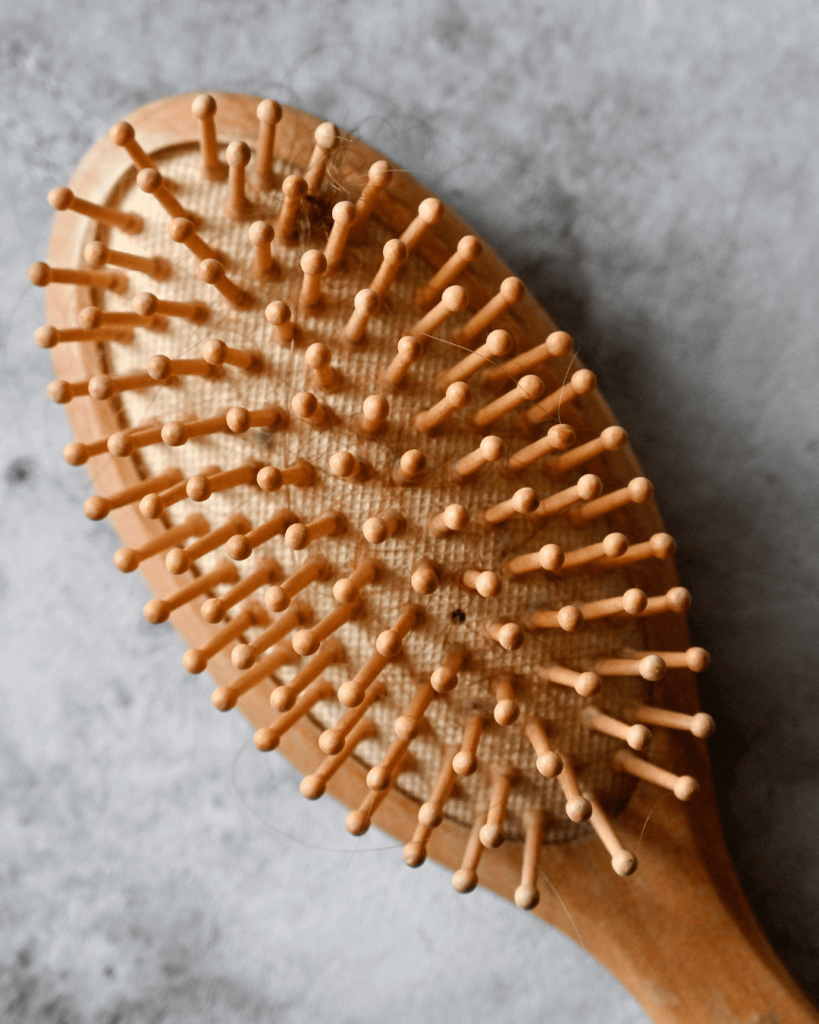
2 Scalp scrub
For healthy scalp apply scalp scrub, gentle is the name of the game. Use the pads of your fingertips to massage the product into your scalp. This allows for thorough exfoliation without causing knots or tangles in your hair.
Tip: Take your time and massage in small, circular motions to ensure every inch of your scalp gets some love.
Your scalp is a sensitive area, so it deserves gentle care. Opt for a scalp scrub that’s specifically formulated to exfoliate and remove buildup without stripping away natural oils. Look for ingredients like natural exfoliants such as sugar or salt, combined with nourishing oils to keep your scalp happy and hydrated.
By using a scalp scrub, you’re not only removing dead skin cells and buildup but also promoting better circulation and healthier hair growth.
How Often Should You Use Scalp Scrub?
Well, it depends on your scalp’s needs and sensitivity.
As a general rule of thumb, aim to use a scalp scrub 1-2 times a week. However, if you have a sensitive scalp or notice any irritation, make it once a week or adjust as needed.
Tip: Listen to your scalp! If it feels balanced and happy, you’re on the right track. But if it starts feeling dry or irritated, scale back on the scrubbing frequency.
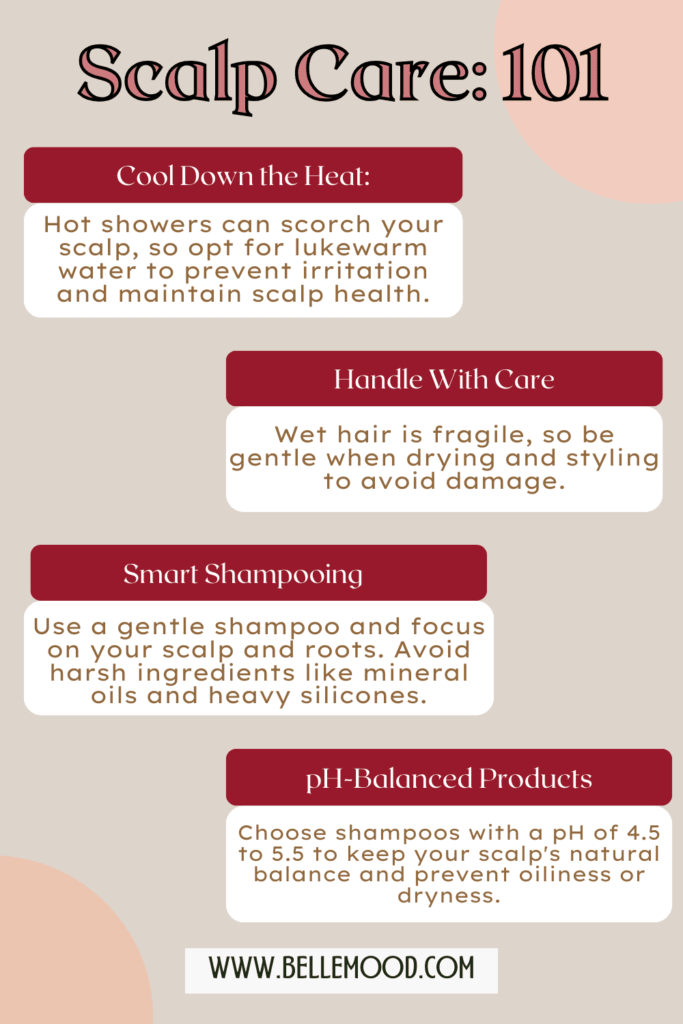
3 Mask
A good mask is a way to go for healthy scalp.
1 Aloe Vera Gel
Known for its skin-soothing properties, this gem also does wonders for your scalp health. It breaks down dead skin cells, promotes healing, and packs a punch of conditioning and anti-itch goodness.
Apple Cider Vinegar
Rich in pH-balancing nutrients, it’s like a spa day for your scalp. Plus, it’s loaded with hair-boosting vitamins like B and C. Say goodbye to irritation and hello to a dandruff-free scalp! But remember, use it with caution if you have any open wounds—those acidic qualities can sting!
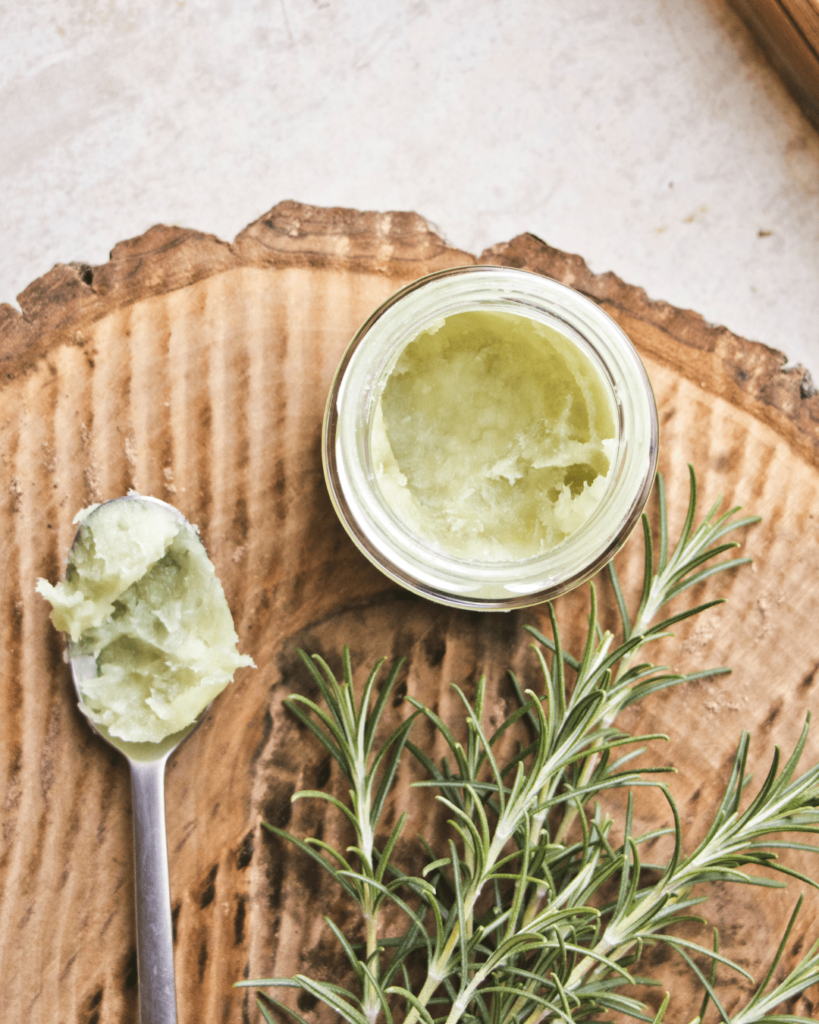
Ginger
Spice up your scalp routine with some ginger power! This fiery ingredient brings the heat—literally! With its thermogenic properties, it stimulates metabolism and works wonders for scalp healing.
Sugar
As a gentle exfoliant, sugar buffs away sebum and product buildup while keeping your scalp hydrated. But if your scalp is sensitive, tread carefully—abrasive ingredients like sugar can do more harm than good!
Salicylic Acid
This powerhouse ingredient goes deep, removing stubborn product buildup and unclogging pores like a boss. But remember, with great power comes great responsibility—avoid it on irritated or wounded scalps!
3 Nourishment
Did you know that what you eat plays a huge role in the health of your scalp and hair?
Food for Healthy Scalp
1. Omega-3 Fatty Acids
Get your glow on with omega-3 fatty acids!
Found in fatty fish like salmon and mackerel, as well as in plant-based sources like flaxseeds and chia seeds, these healthy fats are scalp superheroes. They promote scalp health, zap inflammation, and even give your hair a boost in the growth department.
2. Protein Power
Say hello to strong, shiny strands with protein-packed foods!
Whether you’re a meat lover or prefer plant-based options, there’s plenty of protein to go around. Think lean meats, fish, eggs, legumes, nuts, and dairy products. Protein is the building block of hair, so make sure to get your fill for luscious locks!
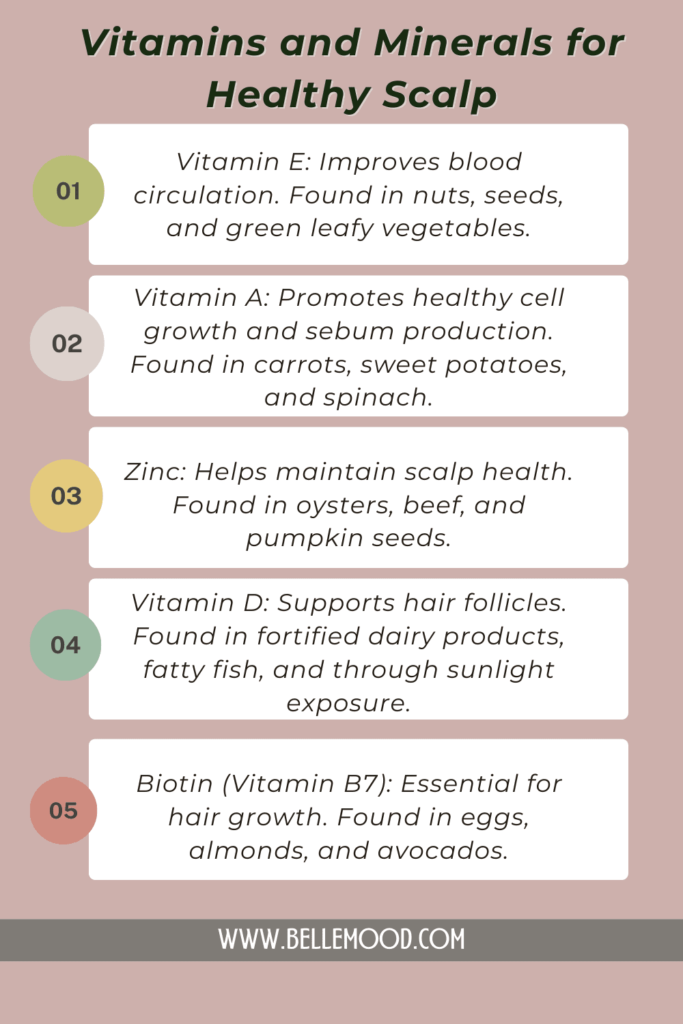
3. Vitamins and Minerals Galore
Fuel your follicles with a rainbow of vitamins and minerals!
Vitamin A: Found in vibrant veggies like carrots, sweet potatoes, and spinach, vitamin A promotes healthy cell growth and sebum production—key for a happy and healthy scalp.
Vitamin E: Give your scalp a circulation boost with vitamin E! Nuts, seeds, and green leafy vegetables are your go-to sources for this essential nutrient.
Vitamin D: Let the sunshine in! Vitamin D supports those precious hair follicles and can be found in fortified dairy products, fatty fish, and good old sunlight.
Biotin (Vitamin B7): Eggs, almonds, and avocados are rich in biotin, essential for healthy hair growth.
Zinc: Keep your scalp in tip-top shape with zinc-rich foods like oysters, beef, and pumpkin seeds. It’s like a spa day for your scalp!
Nourish Your Scalp with Natural Oils

Coconut Oil
Benefits: Rich in lauric acid, coconut oil penetrates hair shafts, nourishing the scalp and preventing infections and dandruff.
How to Use: Warm 2-3 tbsp of coconut oil, massage onto scalp, leave for 30 mins or overnight, then rinse with mild shampoo.
Olive Oil
Benefits: Packed with antioxidants and vitamins A and E, olive oil repairs damage, hydrates the scalp, and reduces inflammation.
How to Use: Warm olive oil, massage onto scalp, cover with warm towel for an hour, then rinse with mild shampoo.
Jojoba Oil
Benefits: Balances oil production and hydrates scalp as it mimics natural sebum.
How to Use: Apply a few drops, massage in, leave for 20-30 mins, then wash with gentle shampoo.
Argan Oil
Benefits: Nourishes scalp, promotes hair growth, and adds shine due to essential fatty acids and vitamin E.
How to Use: Apply a few drops, massage gently, leave for 30 mins, then wash with mild shampoo.

Essential Oils
1 Tea Tree Oil
Benefits: Antimicrobial properties combat dandruff and scalp irritation.
How to Use: Mix with carrier oil, massage into scalp, leave for 30 mins, then rinse.
2 Lavender Oil
Benefits: Promotes hair growth and reduces stress-related hair issues.
How to Use: Mix with carrier oil, massage, leave for 30 mins, then rinse.
3 Rosemary Oil
Benefits: Improves circulation, stimulating hair growth and preventing hair loss.
How to Use: Mix with carrier oil, massage, leave for 30 mins, then wash.
Remember, scalp oiling benefits all hair types. Look for oils like Black Seed Oil, compatible with both skin and hair.
Natural Remedies for a Happy Scalp
1 Aloe Vera
Benefits: Soothes scalp, reduces dandruff, promotes hair growth.
How to Use: Apply fresh aloe vera gel directly to the scalp, leave for 30 minutes, then rinse.
2 Green Tea
Benefits: Packed with antioxidants, reduces hair loss, soothes the scalp.
How to Use: Brew green tea, let cool, apply to scalp. Leave for 30 minutes before rinsing.
4 Scalp massager

1. Fingertip Massage
Spread your fingers and place them gently on your scalp. Now, using the pads of your fingertips, make small, circular motions starting from the front (near your hairline) and work your way back towards the nape of your neck. Apply just enough pressure to feel the love without causing any discomfort.
2. Kneading
Think of this technique as giving your scalp a little squeeze-and-release action. Place your hands on either side of your head and gently squeeze your scalp with your fingertips. Then, release and move your hands to different sections of your scalp, covering every inch with love and care.
3. Tapping
Time to tap into that scalp revitalization! With your fingers relaxed, lightly tap your scalp using the pads of your fingertips. Think of it as a gentle drumming session for your head. Move your fingers around to ensure every area gets its fair share of invigoration.
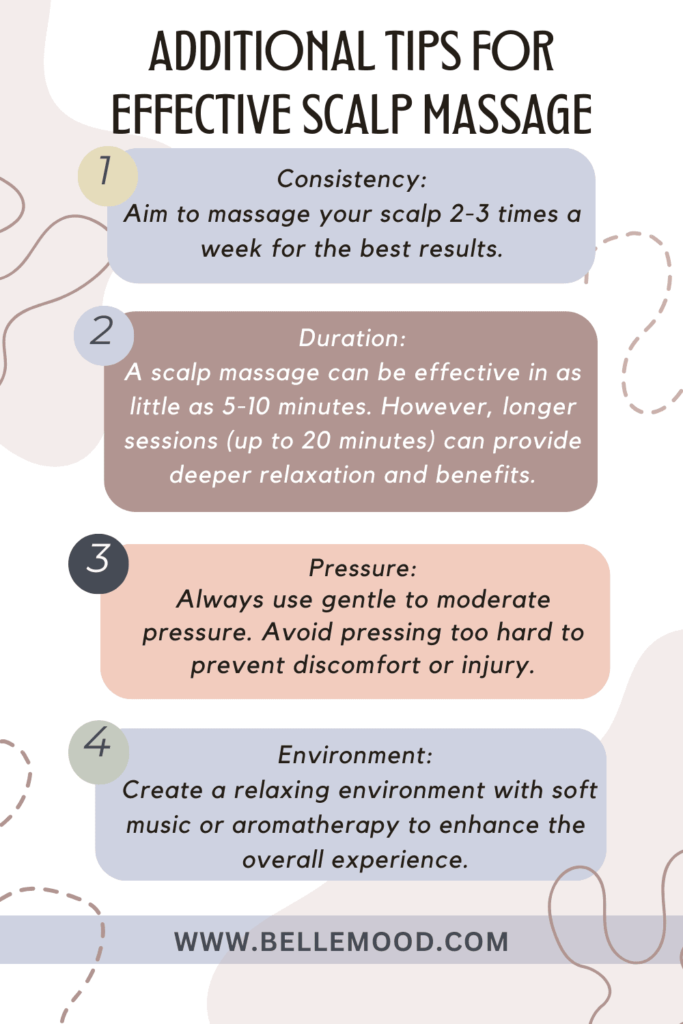
4. Oiling
Take your scalp massage to the next level by adding some nourishing oils into the mix. Choose natural oils like coconut, olive, or jojoba, and if you’re feeling fancy, add a few drops of essential oils like lavender or rosemary for that extra oomph. Using your fingertips, apply the oil to your scalp, starting from the roots and working your way to the tips of your hair. Ah, bliss!
3 Shower care
1. Shower Head Filters: Your Scalp’s New Best Friend
Ever wondered why your scalp feels a bit off-kilter despite your best efforts? Enter the unsung hero: the shower head filter. These nifty gadgets work wonders by filtering out chlorine and those pesky minerals that wreak havoc on your hair and scalp.
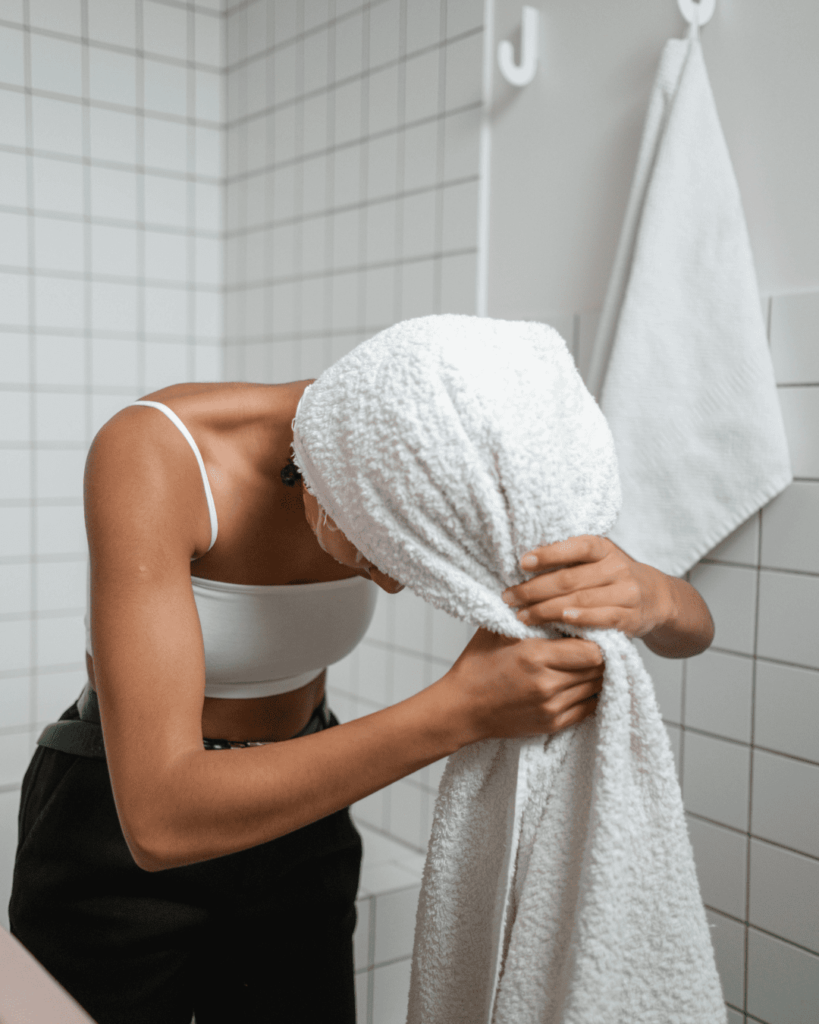
2. Dial Down the Heat: Hot Showers Beware!
Confession time: I’m a sucker for hot showers too, but here’s the cold, hard truth—literally. Hot water can scorch your scalp, leading to irritation and even increased oil production or dryness. So, do yourself a favor and dial down the temperature a notch. Your scalp will thank you later.
3. Handle With Care: Wet Hair, Handle With Care
Repeat after me: wet hair is fragile hair. Seriously, it’s like handling a delicate flower—you’ve gotta be gentle. Wet hair is more prone to damage, so treat it with the TLC it deserves. And don’t even think about rubbing it vigorously with a towel. Pat, don’t rub, my friend.
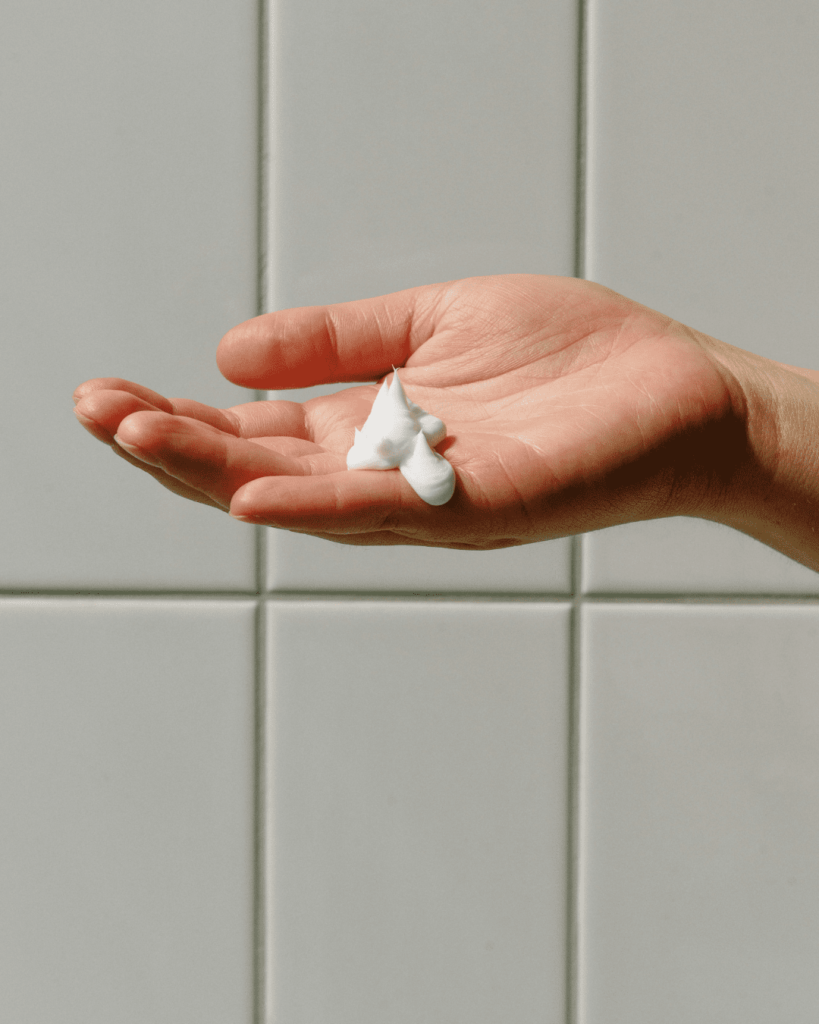
4. Rinse, Repeat, and Emulsify: Shampooing 101
Time for a shampooing masterclass! Shake that bottle, emulsify that shampoo, and focus your attention on your scalp and roots—no need to drown your ends in suds.
And here’s a golden rule: steer clear of shampoos packed with mineral oils, waxes, or heavy silicones. Your scalp deserves better, darling.
5. pH-Balanced Bliss: Choose Wisely
Last but certainly not least, let’s talk pH balance. Opt for shampoos with a pH range of 4.5 to 5.5 to keep your scalp’s natural balance in check. This magic number helps prevent excessive oiliness or dryness, leaving your scalp feeling perfectly balanced and oh-so-happy.
Remember, your scalp is just as important as the hair it supports. Treat it with care by using gentle products suitable for your skin type.
Avoid overwashing or using harsh chemicals, as they can strip away natural oils and cause irritation. If you experience persistent issues like itching or flakiness, consult a dermatologist for personalized advice. Healthy hair starts with a healthy scalp!

